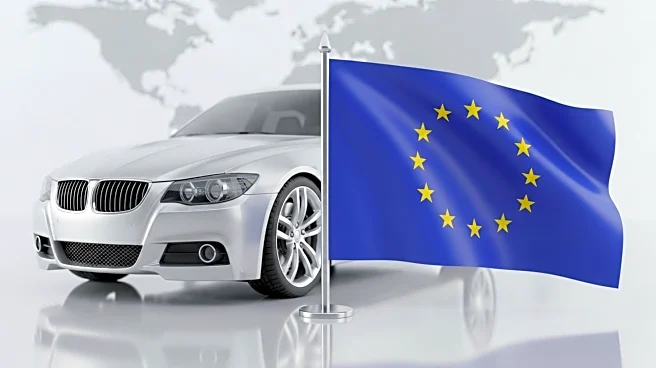What is the story about?
What's Happening?
The United States has reduced tariffs on auto imports from the European Union to 15%, effective retroactively from August 1. This adjustment is part of a framework trade agreement reached between the U.S. and the EU earlier this summer. The Department of Commerce and the Office of the U.S. Trade Representative published the changes, which include exemptions for certain sectors like aircraft parts and pharmaceutical drugs. The tariff reduction follows the EU's legislative action to lower tariffs on American goods, paving the way for the Trump administration to implement the new rates.
Why It's Important?
The reduction in tariffs is significant for the automotive industry, particularly for European car manufacturers like Volkswagen, Porsche, and Mercedes-Benz, which saw stock gains following the announcement. The previous 25% duty on EU vehicles posed a substantial cost burden, and the new rate is expected to enhance trade relations and economic cooperation between the U.S. and the EU. The move reflects President Trump's strategy to adjust tariff rates with economies that have established trade pacts, potentially influencing future trade negotiations.
What's Next?
The U.S. may continue to amend the list of products affected by tariff changes, as indicated in the notice. The ongoing adjustments could lead to further negotiations and modifications in trade agreements with other economies. Stakeholders in the automotive industry and related sectors will likely monitor these developments closely, assessing the impact on trade and production.
Beyond the Headlines
The tariff reduction underscores the complexities of international trade agreements and the balancing act between protecting domestic industries and fostering global economic partnerships. The decision may influence future trade policies and negotiations, setting a precedent for how the U.S. approaches tariff adjustments with other trading partners.

















